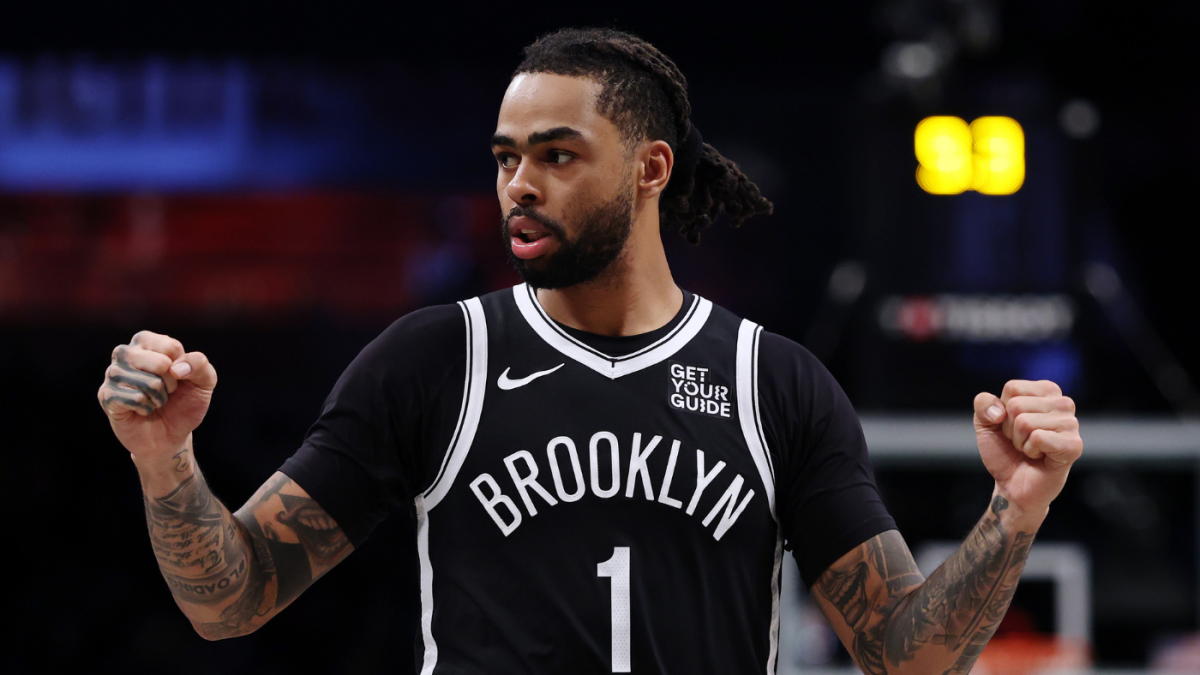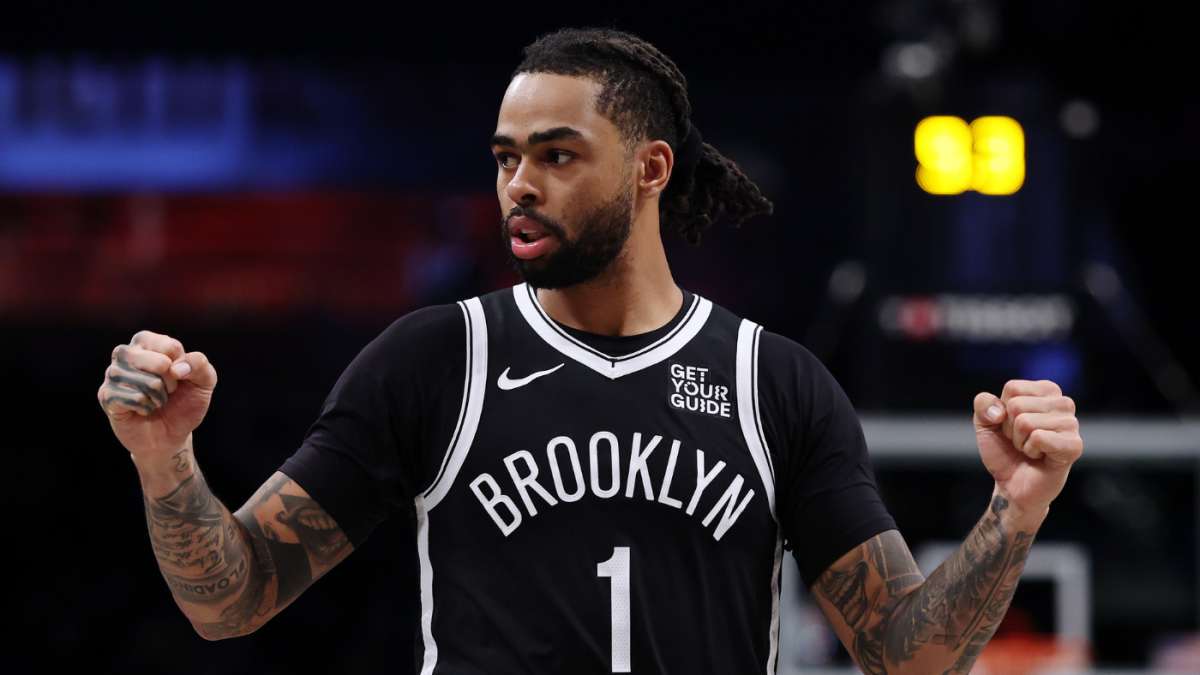The Dallas Mavericks’ recent signing of D’Angelo Russell to a two-year contract valued around $12 to $13 million is a strategic move aimed at addressing a critical void in their backcourt for the 2025-26 NBA season. This acquisition comes at a pivotal time, following Kyrie Irving’s ACL injury, which will sideline the star guard for the first half of the upcoming campaign. The Mavericks’ decision underscores both their immediate roster needs and their broader vision to maintain competitiveness in the highly competitive Western Conference.
Addressing the Kyrie Irving Gap
Kyrie Irving’s injury presents a significant challenge for the Mavericks, particularly in terms of offensive and leadership dynamics. Irving, known for his elite scoring ability and playmaking, is a cornerstone of Dallas’s backcourt. His absence for at least half the season necessitates finding a capable replacement who can both initiate offense and handle scoring responsibilities. D’Angelo Russell emerges as an ideal fit for this role. As a veteran point guard and former All-Star, Russell brings a proven scoring prowess and playmaking ability that are essential for running an NBA offense effectively. His primary role will be to serve as the Mavericks’ primary backup point guard and potentially the starting guard until Irving’s return. This dual role highlights the urgency and expected contribution level Russell is expected to bring to Dallas.
Contract Considerations and Market Value
The contract terms, described as a two-year deal worth approximately $12–13 million, reflect a balanced financial commitment that aligns with the Mavericks’ budget flexibility and playoff aspirations. This deal positions Russell as a mid-tier veteran free agent acquisition, offering a reasonable valuation for a guard of his caliber without overcommitting cap space. For Dallas, this provides roster stability while leaving room for future maneuvers once Irving’s health is restored. The deal also likely precludes the Mavericks from re-signing other guards such as Dante Exum, signaling a shift in roster priorities. This strategic financial planning ensures that the Mavericks can maintain their competitive edge without compromising long-term flexibility.
Russell’s Fit with Dallas Mavericks’ System
D’Angelo Russell’s playing style complements Dallas’s offensive architecture, which is centered around Luka Dončić. Known for his shooting and ability to create shots both off the dribble and in catch-and-shoot situations, Russell adds another scoring layer to the Mavericks’ offense. His command of the point guard position offers more balanced floor spacing and offense distribution, which is crucial for maintaining offensive fluidity in Irving’s absence. Russell’s prior NBA experience with multiple teams, including the Lakers and Nets, equips him with the adaptability to integrate quickly into Dallas’s system. His ability to maintain offensive tempo and make key plays makes him a suitable bridge player during Irving’s rehabilitation. Moreover, Russell’s veteran presence can aid team chemistry and mentor younger guards on the roster, further enhancing the team’s overall performance.
Strategic Implications for the Mavericks
This signing signals the Mavericks’ commitment to retaining a high-powered offense despite potential roster disruptions. With Luka Dončić still the central figure, adding a reliable secondary scorer and floor general like Russell mitigates the risk of offensive stagnation caused by Irving’s absence. The two-year contract term suggests that Dallas views Russell as a valuable short- to mid-term asset who may influence the team’s trajectory beyond just this season. By not opting for a one-year “band-aid” deal, the Mavericks appear to value continuity and flexibility, potentially giving them a trade asset or a returning player post-Irving recovery. Conversely, the move may impact team depth decisions, especially concerning guards like Dante Exum, indicating a reshaped guard rotation now anchored by Dončić, Irving (when healthy), and Russell.
Broader NBA Free Agency Context
Russell’s signing by Dallas also represents a noteworthy ripple in the NBA’s free agency landscape. As teams maneuver around injuries and contract uncertainties, securing experienced, versatile guards like Russell exemplifies a growing preference for adaptable veteran players who can fill immediate needs without hindering long-term flexibility. Dallas’s move contrasts with more aggressive or exorbitant free agency spending headlines, underscoring a pragmatic approach focused on matched talent, positional need, and fiscal responsibility. It also reveals how teams balance short-term exigencies caused by injury with sustained roster building. This strategic approach ensures that the Mavericks can navigate the challenges of the upcoming season while maintaining their competitive edge in the Western Conference.
Conclusion: A Calculated Move to Stabilize and Thrive
The Mavericks’ acquisition of D’Angelo Russell is a calculated maneuver designed to stabilize their backcourt in the short term while preserving their competitive edge in a challenging Western Conference. By securing a two-year deal with a seasoned guard, Dallas reinforces its commitment to maintaining offensive fluidity during Kyrie Irving’s recovery and provides Luka Dončić with another capable ally in their championship quest. Russell’s blend of scoring, playmaking, and veteran experience promises to address immediate on-court challenges and fit smoothly within Dallas’s team ethos. This signing reflects strategic foresight, balancing risk, opportunity, and financial prudence—key ingredients for success in the evolving NBA landscape. The Mavericks’ savvy approach, blending urgency and vision, could well position them as major contenders when Irving returns to full health.












